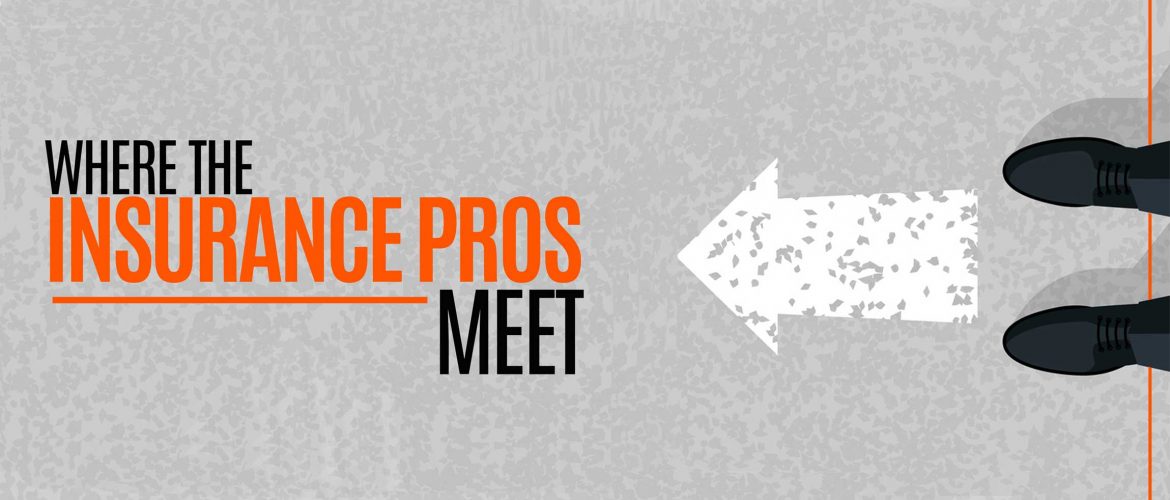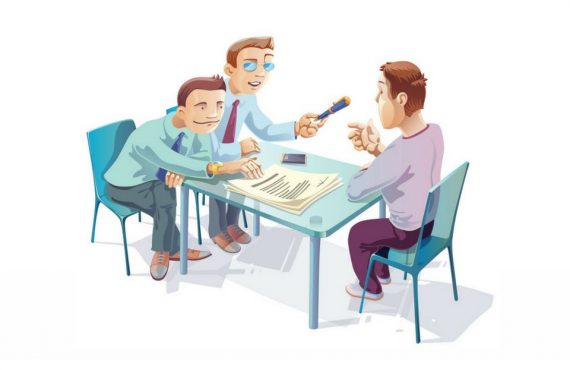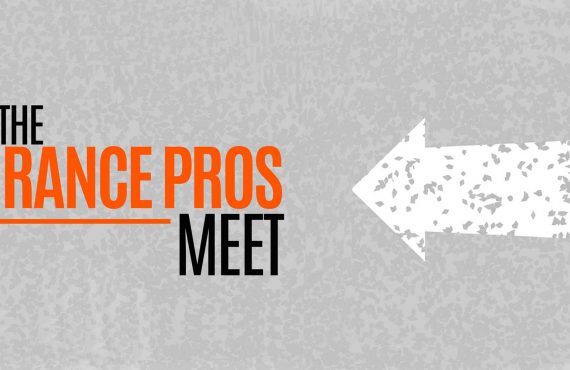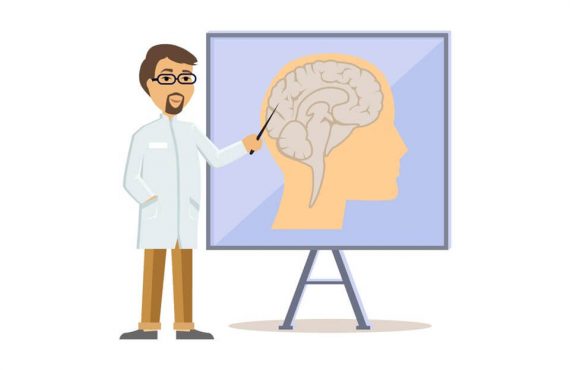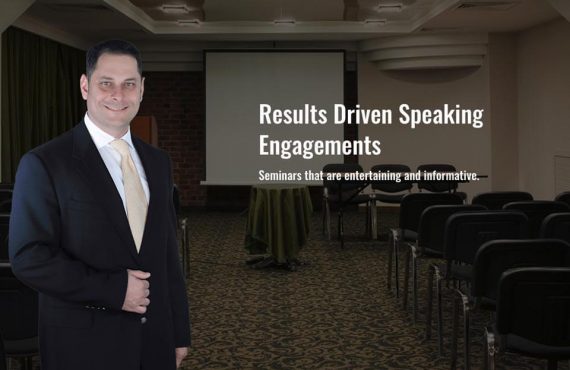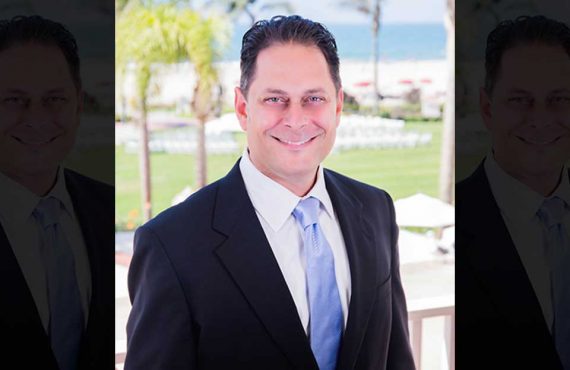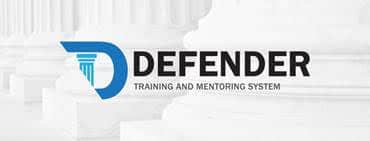Today’s episode is on breaking out in a competitive marketing place. Richard Weylman is a highly sought-after marketing consultant in the financial services industry. Learn more at MarkMiletello.com.
Note: “Where The Insurance Pros Meet” is an audio podcast and is meant for the ear. A transcript of the audio is provided for referencing a particular section or for you to follow along. Listen to the episode to get the most out of our show. We use both speech recognition software and human transcribers to create the transcripts so they may contain errors. If you’re going to quote us in print, please be sure to check the corresponding audio.
TRANSCRIPT
Announcer
Where The Insurance Pros Meet, Episode 3.
Richard Weylman
Remember, relationships drive revenue, and if you want to grow a practice today, they want you to relate.
Announcer
Where The Insurance Pros Meet is a podcast that brings the greatest talent in the world together: managers, coaches, and producers; the very best experts the insurance and financial services industry has to offer. Get ready to change the way you do business to have your most successful year ever. Now, here’s Mark Miletello, a top 1% producer, manager, and your host of Where The Insurance Pros Meet.
Mark Miletello
Today we’re going to discuss breaking out in a competitive marketing place. We have a very, very special guest on the show today. He’s a highly sought-after marketing consultant in the financial services industry. He’s the author of two best-selling books, Opening Closed Doors: Keys To Reaching Hard-To-Reach People, and a recent read of mine, The Power of Why: Breaking Out in a Competitive Marketplace. This book has been endorsed with names like Donald J. Trump, yes, that’s now President Trump, Christopher Forbes, Richard S. Bernstein, Milton Pedraza, founder of an online university, the Weylman Center for Excellence in Practice Management. By the way, his work has been described by Christopher Forbes of Forbes magazine as brilliant, and I personally agree. I’ve been following and learning from our guest for a decade now, and I’m honored and excited to welcome Richard C. Weylman to the show. Welcome, Richard.
Richard Weylman
Thank you, Mark. Great to be with you. I appreciate the privilege of being part of the programming Where The Insurance Pros Meet. Thank you.
Mark Miletello
And thank you. Richard, were you able to catch the Mayweather/McGregor fight?
Richard Weylman
Oh, absolutely. I’m a huge boxing fan. Although a lot of people thought it was going to be for show only, I thought it was very interesting. I thought that McGregor handled himself well given the fact it was way outside of his, how shall we say, his sweet spot. But it was really an interesting fight. I think that it was truly once in a lifetime.
Mark Miletello
Yeah, it’s neat. I love the way the announcers even were questioning in the early rounds. It’s funny. I like to start my show with a Mayweather jab, followed by a straight overhand right, which he implemented so well, but knock out information that will immediately help our listeners win in the arena of marketing and sales in the insurance and financial industry. Now, Richard, I know someone who paid $5,000 for a ticket. I personally paid $100 to see the fight. And others that I’ve talked to cannot even believe people were paying this much to see this fight. So, I think there’s a lesson here. As a marketing coach, I can’t help but relate this to consumers of our products. I guess the question is, regarding our products in the insurance and financial industry, products that may do the same thing but are priced differently, how is it that agents or reps stay in business unless they’re the lowest price? I think you’re the perfect person to ask that question too.
Richard Weylman
Wonderful question. It’s a perfect analogy. Why would somebody pay $5,000 or $100 to be able to see that fight? In the end, there are a couple of things to always consider. Why do people, and why are people willing to pay more? If they can afford it, why are they willing to pay more than, let’s say, the low-cost provider. It really gets down to a couple of very fundamental things.
Number one, it’s the value that they place, in the case of insurance, on the recommendations that are being made. If you do a great discovery and really uncover, hear me clearly now, the emotional issues they’re dealing with, not just, “I need more life insurance to protect my family,” but really be able to tell a story of delivering a death benefit, to tell the story of why disability insurance is important, to be able to tell the story from your own perspective, that engages people emotionally, and when people are emotionally engaged, the value is far beyond just the product, but it also brings value to the relationships they have.
The important thing here is value is created. Cost is a function of value. If you expand the value, cost becomes a minimal or a minor issue. That’s one. Two, the second piece of that puzzle is they really want to feel that their life insurance agent, or advisor, use any phrase you want, is really a resource for people like them. What do I mean by that? I mean, they want to feel comfortable. You’re not just there to create a transaction, but you’re there to be able to help them, more holistically, if you will, with all their financial issues. Now, you may not be cross-licensed. You may not be able to sell investments, but you certainly can be the individual that they can call when they have a financial question, and through strategic partnerships you can then place yourself in their mind as a resource to them so that they see the value you bring is not just the product, not just the platform, but the insight that you have and the specialist in your firm that you can deliver to them to help them to get their financial life in balance. Is that helpful?
Mark Miletello
Absolutely. I mean, I want to say, “If we could bottle that up and sell it, or give it away,” but you really have. You have in everything you’ve done, in your books, in the classes that I’ve studied for 10 years, and you’ve done it with the Weylman Institute, so you really have bottled it up. But there are so many nuggets in what you just said. What I think, Richard, is I think people can afford what they want to afford as well. When you think about the value the promoters built in the right marketing campaign, it’s numbers that they calculate, and they feel is their worth, not the cheapest that they could do it for. Right? I guess from the south I have a different perspective. I’ve seen a $5,000 pickup truck driving down the road with a $20,000 ATV in the back, so it reminds me that when you want something bad enough you find a way to afford it. It becomes part of your budget.
Richard Weylman
That’s right. As I said, the cost is a function of value. I think it’s important too for insurance, particularly with DOL and all the things, you know, there’s all this noise out there. And people are like, “Oh, fee disclosure, or commission disclosure.”
Part of the problem, frankly, Mark, is that insurance agents and advisors, even on the financial advisory side, when they’re asked … and I asked an insurance agent recently who is a friend of my wife, and I said, “So, how do you get paid?” “Oh, I get paid on commission.” Wow. And I ask advisors all the time, “So, what kind of a practice do you run?” “Oh, I run a fee-based practice.” Well, either one of those statements, if you say you run a fee-based practice, my first question must be, “What’s the fee?” If I say, “How do you get paid?” And you say, “I get paid in commission.” I’ll say, “So what’s your commission?”
My advice to everyone listening to this discussion today is very simple. If somebody says, “So, how do you get paid?” “Well, I get paid for the recommendations that I make that you accept to protect your family.”
Mark Miletello
Love it. Absolutely. Well, you know, like I said, it seems like everything that you say, and when I’m reading your book, and listening to you, you add one little twist to things that people say that brings so much value. You’re right. If someone asked me today how I got paid I would have said the same thing, because that’s … But that makes a lot of sense, and thank you for sharing that.
Richard Weylman
You’re welcome.
Mark Miletello
We’ve kind of talked about the pinnacle of boxing, so as one of the leading minds, I believe, in professional marketing, Richard, right off the bat let’s give the listener a professional tip or tool. Is there a tip or tool or a piece of technology that you can share with the listener that is either transforming your business or could help transform theirs?
Richard Weylman
Well, not a self-promotion. Obviously, I’ve been producing coursework for many years. We’re a research-based consulting firm first. We’ve done a lot of discovery of what’s going on with the consumer, and that’s really our sweet spot, it is understanding how to engage the consumer, and, more importantly, convert them into a client. Our online platform The Weylman Center has allowed us now to bring 41 courses that used to be on DVD, et cetera, it’s allowed me to upgrade all of that and put that in the marketplace. It’s WeylmanCenter.com, and an agent or an advisor can sign up for $27 a month, have access to 41 different courses, hot links to every single market in the United States right at the local level.
But setting that aside for the moment, because we’ve really designed that for people that really want to build a practice of distinction. I think the large picture here is this. We’ve just concluded doing research with 350 affluent individuals. What does that mean? Well, we have about 7,000 agents and advisors that belong to our online university. We do a lot of webinars, we have masterminds, it’s a very interactive site with a lot of people, they’re taking courses, they have all the tools they need to execute. I do a lot of webinars and masterminds, and they dial in.
I got 70 of our members to go out and interview five of their best clients to ask four questions. Number one, “How can I get more clients like you?” Number two, “What do you look for when you engage with an advisor initially?” Number three, “How can I do a better job of explaining my platform to you?” And number four, “How important is good service?” In response to your point, as a tip, I will tell you this is what’s critically important. 87% of people in this country today belong to an organization that supports what they do for a living or their special interest. Now, that could be everything from golf, and tennis, to book-reading, too, in our case, the fight game. But the bottom line is, 87% of people belong to some network that supports things they’re interested in, including their occupation, business, or profession.
But here’s the bigger point. 71% of those people said they and people like them only want to work with an advisor that’s in their network, meaning that individuals that really understand their situation. And everybody on this call, I mean, we all know this. If you all are honest with yourself, you’ve been asked the question. “Have you ever had clients like me, or have you ever worked with anybody like me?” They’re really trying to get that discover in their own mind; do you know them, and do you know their situation.
My tip for everybody is that absolutely not target small business, or not just target doctors, but to really break that down and say, “What type of small business? What type of doctor?” Because as an example in physicians, maybe 5% of physicians belong to the American Medical Association, but well over 97% belong to an organization that supports their specialty, whether it’s anesthesiology, or chiropractic care, or orthopedic surgeons, because that’s how they get their CE credits, and that’s how they expand their learning.
So that’s really my tip for everybody based on our research, is that 87% of Americans belong to something that supports either their business or their interest, and by determining where your best clients, your top five or ten, what they spend their time on, the organizations they belong to, and then target those organizations where you can become a resource to the people in those organizations, that changes the game.
Of course, we have our online platform, and you can sign up for $27 a month, and take the coursework, and participate in the study groups and all of that, but the most important point I want to make here is not just about our site. Let’s set that aside. The key thing is, the tip: focus your marketing efforts. Being all things to all people today is a non-starter. If you do that, if you’re targeting small business, you’re targeting 13% of the population that’s no longer involved in something. Is that helpful, Mark?
Mark Miletello
Absolutely. What you’ve shared, we usually take this opportunity to break for some industry news, and you really kind of segued right into what I’ve recently read; that some industry firms are not hiring experienced reps. To me, this is a complete about-face from past hiring procedures. I can honestly say, as a manager of over 20 reps and being in this industry for 27 years, and from thousands of interviews, I think I understand, and maybe perhaps agree with a little that it’s difficult to hire experienced reps. But not because I don’t want an experienced person, I mean, hey, I would love to bring someone on board that I don’t have to teach all the little things to, but Richard, I really believe from personal experience the reason this news that I’ve read has come about is because it’s hard to teach reps that are set in their ways new marketing skills, if you will. That’s kind of what you’ve just … You must be involved and plugged in. Just banging out the phone is not working as well as it was when I first started.
Richard Weylman
Well, that’s true, and no disrespect to anybody, but I will tell you we have seen a massive shift in consumer behavior in the last, well, let’s say the last ten years just to come up with a … You know, this is ’17, so let’s go back to ’08, and we all know what happened in ’08, but we’ve really seen it in the last five, six, seven years. There’s been a massive shift in consumer behavior, and because of that, many of the things we used to do in marketing simply just don’t work anymore. Mass marketing is a good illustration.
Of course, that’s not to say that our best experience is not good. It’s just that sometimes all of this best practice legacy experience, while it worked 15 or 20 years ago, it doesn’t apply to the consumer today. The millennials are different. They’re very engaged at a completely different level. They are buying life insurance. They’re very engaged but at a different level.
As an illustration, if you look at boomers, boomers give their money to major charities. Millennials give their money to their alma mater. That’s a massive shift in consumer behavior. The point being that even individuals that are in the market today, and let me speak to the veterans for a moment. A lot of people say, “Well, veterans won’t change behavior.” They won’t unless you really set a vision in place. If you can help yourself as an individual listening to this, if you’re an experienced advisor, agent, or producer, any phrase you want to label yourself with, but if you’re experienced in this business it’s critically important you reset your vision for the impact you want to make, not just on your own personal income, but the impact on the lives of so many people. If you reset your vision, then a couple of other things come into play. The things that are important to change behaviors, first you’ve got to be open to new ideas because things have changed. Secondly, you’ve got to be willing to execute. And thirdly, you’ve got to be transparent if you’re stuck.
I mean, we’ve got several thousand experienced advisors on our online platform. We have mastermind groups, I have a whole top-of-the-table group. It’s amazing how open they are. But they all have a story about, you know, “I finally got the point I was spending all my time running this thing and I realized I need to invest in services, I need to get back to doing what I love, which is bringing in new business. So, I got open to new ideas, I became willing to make some changes, and when I’m stuck I log into the masterminds and I’m moving forward.” So those are the things that are important, I think, for people to think about. You must reset your vision for what you want to accomplish with your career with your business, and then be open, and willing, and transparent to make the changes.
Mark Miletello
Well, and they have such a leg up on a brand-new person, let’s say, coming right out of school or someone with no experience in the industry. They have such a leg up, so it hurts my heart to see a veteran come on board to fail. After reading your book, Richard, The Power of Why I kind of felt it’s possible a veteran in the industry could use the advice I think your layout so well in your book. I love even, and I’ve told you this before, what I really appreciated is by page seven you answered this why question, whereas I believe many others that I’ve read and listened to don’t even know what the why question is, and that’s “Why are we failing? Why do customers do business with us? Why are we not performing like others in the field?” And you answer to why companies or reps are excelling while others might not, is the message and deliver from their customers perspective. The veterans especially are sometimes stuck in the only sales process they know, which is selling a product, presenting a product, talking about their fee, their commission like you said earlier.
I think they fail in my eyes, mainly from a lack of understanding your book The Power of Why. And just personally here recently, and I didn’t mean to kind of get into this, but over the last three years as a leading life insurance agent in one of the largest companies and oldest companies in the nation I kind of felt clients weren’t accepting things that they had did in the past, and I was not getting the same results. And little by little I saw this transition, Richard. I really think after reading your book I finally pinpointed that I’m not delivering from a customer’s perspective. As a personal story, I’ve thrown out everything that I know in my life insurance, I call it, presentations, and I’ve changed to a new life insurance discussion that is centered around the customer. And I’ve got to tell you, my sales have increased tenfold over the last, just three to four months by implementing this new concept.
But it’s completely based on what you said right at the beginning of this book, of delivering from a customer’s perspective. I think veterans have the hardest time accepting that. That’s from personal experience, but…
Richard Weylman
Well, you’re exactly right. Just to piggyback on that for a minute, John Wooden, who is America’s basketball player I guess is the way he would be described, and just something he said many years ago, one of his great quotes, and I don’t know if I’ll get it exactly right, but it’ll be close, and that is that “You learn the most when you think you know it all.” I think that’s so important today, and we’ve seen this massive shift in consumer behavior. To your point listen, information is ubiquitous, opportunity … I mean, gosh, you want to buy life insurance? Type it in your computer and pull it up on the screen. Want to do a financial plan? You’ll get 2 million links.
So, the truth of the matter is that the consumer already has all the power. They’ve got all kinds of places they can get information, and they can source things, they can buy things. If you don’t explain your value from their perspective, meaning, “This is what it means to you, and the benefit to you is … ” Then there’s a complete disconnect. Let me put it this way. If you are there trying to convince them to buy as opposed to explaining the value you deliver, people are rejecting convincing. What they want to know is, “How is this recommendation going to solve my problem or address the issue I want to get handled?”
So, when you make a recommendation, whatever it might be, “I think that these are the two recommendations I want to make. You’ve got two options here Mr. and Mrs. Wilson. Here’s the first one. The first one is you could buy this particular product, and let me tell you what this will mean for you.” And then explain what they will accomplish with that. Then, go to the second piece, “And the benefit to you is … ” Same thing when you make the second recommendation. When you make that … “And here’s what this will do for you. And the benefit to you is … ”
People want to know how does your recommendation apply. That’s the issue they deal with. When I did the research for the book and we surveyed and talked to thousands of people, the thing that people kept saying is, “I’m sick and tired of people trying to convince me without understanding they need to tell me how it applies to my issue. I want to know how it applies. What’s the application? If they don’t want to give me how it applies, I’m just going to find somewhere else to buy whatever that product might be.” That’s everything from life insurance all the way out to you name it.
I’ll give you an example. You go to Amazon or Walmart online, and no matter what product you click on, it always tells you, “What this means to you is … And this is what it’ll do for you.” Because both of those firms have realized if they can articulate application to whatever it is that individual is attempting to do, people will buy it.
Mark Miletello
Well, perfectly said. That’s why I love when you accepted coming on this show because I knew I would get that right there. It’s something that, I’m still in the field as a producer, as a manager, as a recruiter, I’m still in the field, and I can tell you that’s where I was going with it, is that you must get to the emotional issue as you said earlier and just talking about products, we have to move away from products, because products are everywhere.
I’m going to get into some rapid-fire questions here for you. I want to talk professional strategy. Now, Richard, I’ve mentored under you, like I’ve said, for a decade now. I’ve read your books, articles, your email messages, which people should sign up for, which I very much enjoy the little short articles you put out on your blogs.
Richard Weylman
Thank you.
Mark Miletello
You have a tremendous and endearing story of where you’ve come from to where you are now. Now, not to compare it all, Richard, but I do feel like I’m also that guy that can say, “If I can do it then anyone can.” And you have shown by a successful career that, no matter what the odds, it can be done. Success is obtainable. So maybe you can share with the listeners your professional strategy of how you succeeded? That would be something we’d like to hear.
Richard Weylman
Well, I thank you, Mark, and I’ll be brief here. But I was an orphan, my mother died when I was five, my dad died when I was six, and my father had no insurance. I went through all his … He was a journal. He wrote down everything. I could tell you what he had for lunch on May 5th, 1942. He just wrote everything down. I’ve gone back through all his old diaries, logs, journals. And there was never a mention of life insurance, but again, it wasn’t a topic back in the 40s and even in the 50s like it is today. So as a result, we had no insurance. My brother and I and my sister were split up and lived in foster homes. I lived in 19 foster homes, went to 11 different schools. We didn’t get back together until we were in our mid-20s.
But here’s the thing that … And people say, “Oh, that must have been tough.” Every one of you that are listening to this has a story you can tell. You might have been in a loving, nurturing home, but at the same time, you had that entrepreneurial fire burning in your belly, and you had to overcome obstacles to even be on this call today, or listening to this podcast. It’s not that the story is important. What’s important is what do you do about it?
So, from a professional perspective, I will tell you, I read many years ago a scripture that said, “People without vision perish.” And I mentioned this earlier about the importance of vision. From a strategic perspective, as a professional, the most important thing, even if it’s your first day in the business or your 25th year in the business, you really need to have a vision for what you want to be in the marketplace. I mean, if you look at the big companies that are doing extraordinarily well, like, oh gosh, pick some, Ford, I mean, we could make a long list here, they all have reset. They’ve recovered from a lot of dark days, perhaps, in their industry because the CEO came in and reset the vision. “Here’s who we’re going to be in the marketplace. This is who we aspire to be. This is what’s going to put us on track.”
Now, why is this important? Well, from a strategic perspective, the first step, get your vision clear. What do you want to be in the marketplace? Not a mission, but a vision statement. What do you want to be in the marketplace? Secondly, then you will make decisions about the right strategy to fulfill the vision. Now, let me flip that around. If you don’t have a clear picture of the type of practice you want to build, the kind of impact you want to have on your community, the type of agency, perhaps, that you want to build if you’re in a leadership role. If you don’t have a clear vision, no amount of strategy in the world is going to save you, because you’ll try this, and, “I’ll try that, and I’ll try this for six months.”
So, what happens is, if you have a vision in place then you are far better at selecting the right strategies to make that vision a reality. That’s the key. From a professional perspective, I have a very clear vision. I’ll just tell you what it was. Living in a foster home, I made up my mind that I was never going to live in basements and attics again, and my vision was that I was going to be able to live in some of the homes that I had seen when I was shoveling snow, and delivering papers, and all of the things I did when I was a young guy coming up, and I said, “Someday I’m going to live in a house where I don’t have to live in a basement. I’m going to have a house of my dreams.” That was my vision early in my life when I was like 11 years old.
So, I became a student of that lifestyle, and I began to study the affluent. I read all the books on social graces. I mean, which silverware to use, I mean, incredible, Julia Child’s books, I’ve read all those books because I wanted to learn how I could live in that lifestyle having never been raised in that lifestyle. Then, of course, as I got into the business I began to learn the things that were necessary to be effective in business, having a very clear picture of what my market was, meaning, “Who did I want to do business with?” Secondly, “How could I engage them at a deep level?” Thirdly, “How can I set myself apart in the ways that our product made a difference?”
I was in the automotive industry, I was in the industrial laundry industry, I was in the publication industry, many other things, but I always looked at it from that standpoint: “Who’s my customer? How can I bring myself and our product to market in a way that’s set apart from others, and how can I engage people for the long-term, so it wasn’t just a transaction, but it was a relationship?” So, I read everything I could. I spent a lot of time on strategy.
So, to recap, get your vision clear. That’s the crystal clear important point. Who do you want to be in the marketplace? Secondly, start selecting strategies to help you identify markets, strategies to help you bring your product to market in a way that’s distinct. Mark mentioned that. Meaning what? Articulate from the, let’s say, customer, or client, or prospect’s perspective. Then, thirdly, it dawned on me very early, and by the way, our research now proves this out, that service was meaningless to people. In our country, if you go to McDonald’s and the fries are cold, I don’t know what … Let’s say they’re $1. You can take them right back in and they’ll replace them. So, for us to have somebody buy a life insurance policy and then tell them, you know, “We’ll take your call when you call, or we’re going to provide you service from time-to-time during the year,” I don’t know how-
Mark Miletello
That’s a minimum standard.
Richard Weylman
Yeah. I mean, how magnanimous of us. What we’ve found out is people today are not interested in good service. That’s a minimum standard. What they’re looking for is an elevated experience. That means you know their name, you record the things they’re passionate about. You send special notes on special days, “Happy anniversary. Another successful year as a policyholder.” Not just a birthday card that your policy is going to cost more if you don’t buy tomorrow. The important thing is, if you get your vision right, start setting the strategies in place about the market you want, the products you’re going to deliver, how you’re going to set yourself apart, and then, once they’re a client, how you can turn them into delighted advocates.
Mark Miletello
Well, thank you. I’m taking notes as we’re on this show because I love it. But I do want to say thank you for sharing your personal story. You’re right. We all have our personal story and our challenges and the things … I think I just learned something, and that was, “I always said,” and I even wrote it in a book myself, “that fear was my motivator because I did come from means where I had to take care of myself at an early age.” I used to think that it was fear, but I think now that you say it in that light, maybe it was the vision of wanting something better. So maybe that was my motivator more so than the fear itself of living like that.
I know from knowing you that you’ve done a lot of work in the field with large corporations with advisors and, more importantly, their customers, and you’ve surveyed and met. I think you can answer this question better than anyone, which is, Richard, what would you say that people today want from an advisor in the field of insurance or related financial services, what do consumers want today from their advisor?
Richard Weylman
Mark, that’s a great question. What do people really want today? Well, the truth of the matter is, what they really don’t want, first, are they don’t want somebody that’s transitionally oriented. People today want a relationship. When you look at the industry, you must realize that relationships drive revenue. So, what do people want? Number one, they want personalization and humanization. They want to be remembered. They want to have memorable experiences. A lot of people talk about your insurance portfolio. Well, how about your portfolio of memories with my agent; about the things he or she did to really help me to get my financial life in balance, or to protect my family, or to educate my children?
When you think about it from that perspective, relationships drive revenue. If you personalize and humanize, that’s what they’re looking for. I mentioned earlier they want you to be a financial resource. It doesn’t mean you have to have all the answers, but it does mean that you need to pay attention to the specialists that work in your agency or in your firm or in your company that you can plug people into so that they really realize that when they have a question, that you’re not just a custodian of their money or a seller of life insurance, but you’re the guy or gal they can call when they have a financial question, because it’ll open doors of opportunity, whether it be for an annuity, whether it be for an investment, or whether it be for an additional life insurance policy.
It’s important for us to think along that line. Remember, relationships drive revenue. If you want to grow a practice today, people want to have a relationship … What’s the keyword? They want you to relate. Think about if you took Latin. What’s the core?
Mark Miletello
I agree. I’ll tell you, it just happened this past month where I still have a property casualty agency as well, and we’ve taken our largest increase in three or four years. I’ve had one client consider leaving because of the relationships that you build through everything … Not sending a Christmas card with the whole office name stamped on it where you can tell it’s a computer-generated thing, it’s a relationship. So, I think you’re spot-on with that, and I try to teach that to my own team and to the listeners out there that you better find a way to build those relationships differently than you have in the past. I think that’s where you’re going with it.
Richard Weylman
You’re exactly right. That’s what the challenge is, that people get focused on the transaction. But we know that there are lots of psychological needs people have. One is meaning and significance. They want to know that they’re meaningful to you. Secondly, they want emotional security, not just economic. They need to feel comfortable they can talk to you about their fear, their uncertainty, and their doubt. So, what that means is you’ve got to ask questions that allow them, gives them permission to engage. “What are three things you’re most concerned about in terms of your financial future? If you were thinking about your grandchildren today, Mr. and Mrs. Wilson, what are three things you want to make sure happens in their life after you are out of the picture?”
These are the kinds of things that people want to talk about, but if you don’t give them permission to talk about their fear, uncertainty, and doubt, if you don’t engage with them at a deep level, then it’s all transactional, and they’ll have those concerns, but they won’t bring them up.
I’ll give you a good example. I was in a city recently, got on the elevator with a couple. The agent was very kind, “Thank you very much. Appreciate it.” Now, he should have gotten on the elevator and ridden down to the lobby with them. You never put them on the elevator and say, “Thank you very much.” But this couple got on, he dusted them, “Thank you very much. We’ll talk to you in six months or so.” Now, we’re going down the elevator. We were on the 23rd or 24th floor, something like that, and she turns to him and said, “Honey, why didn’t you bring up what we want to do with the grandkids?” And his response was, “Oh, he’s not interested in stuff like that.”
Now, my take was simply this, “How did that agent get in a position where they don’t think he’s interested? Is it because he’s about the … ” I don’t know, and obviously, that was a situation, but for the, shall we say, that couple, particularly the guy to have that mindset … I’d say he was probably in his early 70s, late 60s, but it just reinforced to me how we must engage people at a far deeper level than just the surface transaction, taking care of the need now.
We’ve all seen the statistics. Most people buy insurance from somebody else because they never hear from there, shall we say, the existing agent again, or somebody sells a policy and then never revisits them for additional policies. We’ve all seen those statistics, but the truth of the matter is they’re very real because there is not a lot of relationship building that goes on that … engaging people, sending them an article of interest. Setting up a Google Alert account.
I mean, if you’ve got a client and you’re working in the industry like chiropractors, and you live in Dayton, Ohio, well, just go on Google Alert. Go to Google, type in “alert”, it comes right up. It’s free. You can put “chiropractors, Miami Valley” which is where Dayton is. Great. Overnight, the internet will search, Google will search, and anything that gets published about chiropractors in Ohio or Miami Valley will show up in your inbox in the morning. That’s the kind of thing you just forward onto your clients and say, “Hey, I know we haven’t gotten together in four or five months, but I saw this article, thought you might be interested in it.” What does that say? “I’m interested in you as a person, not just your money or that life insurance transaction.” Those are the ways you build relationships.
You mentioned Christmas or holiday cards. Those are all good. But why don’t we send Thanksgiving cards, because nobody else does? “So thankful to have you as a client. Enjoy Thanksgiving.” How about New Year’s cards? “While we’re celebrating the New Year, we’re looking forward to another wonderful year as clients of ours.” How about 4th July cards? “While we’re celebrating our companies, independence knowing we’re working hard here to make sure that you always can achieve financial independence.” Those are the things that stick out in people’s minds. Find out the month they started their business or got their job and send them a “Happy anniversary for another successful year on the job or in the business.” You’re going to be the only one that does that, but believe you me, that alone will help you stand out and say to them, you’re about them, you’re not just about that which it is that they’ve transacted with you.
Mark Miletello
Good tip.
Richard Weylman
Is that helpful?
Mark Miletello
Oh, that’s a great tip. That’s a great tip. My little addition to that would be if you’re going to consider the card mailing, find out their kids’ ages and send their kids birthday cards. I don’t want to grow another year, and I don’t want as much celebrating, but if you send my kids something, that’s special and thoughtful. Now, Richard, we’ve talked about 10 years ago. So, I want to ask you a professional prediction. Let’s say the year is 2027. What will the financial services industry maybe look like, and how do we fit in from a marketing perspective?
Richard Weylman
Well, that is a wonderful question. The reason it’s wonderful is that I can remember 10 years back, and everybody was concerned, “Well, we’ve got trades, we’ve got all of this, so you can buy insurance online,” and everything. “Oh, the insurance industry’s going away. I mean, it’s all but over.” And people were like, “Well, that’s it. The [inaudible 00:38:03. Start closing agencies here because consumers aren’t going to go there. They’re just going to buy the low-cost provider.” But how shocked … I mean, we could go back 20 years, go back to 1997 when the internet was first coming alive and eTrades were … everybody’s like, “That’s the end. The warehouses are going out of business. Everybody’s going to go to these $8 trades and that’s going to be the end of this business.” And yet, when you look at the numbers it’s exactly the other way around.
I’ll give you a good example. You look at Betterment, which everybody’s like, “Oh my God. A new way of investing.” Yet, they’re hiring advisors like crazy to work in their call centers because people want to call in to get advice even though supposedly it’s more of a robot-advising platform. I mean, just an interesting piece. So, the year is, let’s say it’s 2027, just for our conversation. There’s no question that relationships are going to still drive revenue. I know people are like, “Oh my God.” But the millennials, I will tell you that cheaper rates and lower fees are always going to be in the marketplace, but what people forget, boomers are dying, and those who inherit even medium sums, they want guidance, personal connection. So, consumers are going to continue to migrate to those who can provide guidance and direction.
Now, does that mean that millennials are going to be coming to everybody’s office like, say, boomers do today? Or are they going to want a big conference room? Likely not as much. They tend to like to operate in their own “personal space”. So, I think there’s going to be a lot more, shall we say, out of the office time meeting with people that we see today. I do think the office model will change. I think we’re going to see a lot of people that are going to be on a relational side of the business, really reaching out in the community establishing relationships with, let’s say millennials, who will, of course, be getting older by that time, and they’ll have children, and that will be a whole other issue for individuals in terms of protecting their assets, protecting their children’s education, and taking care of the money that they’ve inherited that have come into their life.
So, you’re going to see a shift, I believe, in the way we do business. What I mean by that is there’s going to be more time out of the office engaging with people in their personal space because that’s how millennials like to operate. They like to operate on Skype. They want to operate on LinkedIn. And there’s going to be another technology that’ll come that we’re not even aware of in the next 10 years. You know, we got Facebook, we got LinkedIn, and we’ve got Skype, but even, there’s another one coming. You can pretty much bank on it given the mobile society we live in.
I can tell you now, just think about how many times you FaceTime. What I have found is a lot of my clients today, they want to FaceTime with me if they’re on their cellphones, which is fine. I think you’ll see more of that. There’s going to be more technology bringing us closer together, but people are going to want that guidance, they’re going to want that direction, and that’s what they’re going to migrate to because, A, what they inherit, B, because millennials love to personalize, i.e. SnapChat, i.e. Instagram. They like humanization, i.e. SnapChat, i.e. Instagram. So, what that tells us is in 10 years I think we’re going to see relationships drive revenue at an even higher level because people are going to be very networked, people are going to work only with advisors that are in their network and that work with people like them, and word of mouth is going to be a tremendous way to grow your business.
Mark Miletello
Well, I see that as exciting, but I also see it as scary for those that don’t know technology or have the ability to do that. Technology, I think … I guess my question, and I know your answer, but I’m going to ask anyway, I mean, I guess you could keep those … In fact, the relationships may even be tighter by using these technologies, right?
Richard Weylman
Oh, absolutely. I mean, I think about just our client base. For years, I mean, we did conference calls. I do, well, even the people that are members of our online university, the Weylman Center, same thing. I mean, when I first launched it a few years ago I didn’t do anywhere near the webinars that I do now, and people plugin. They’re involved in those. We do a lot of Skype with clients. As I said, we use FaceTime now more on calls than ever before. People want that personal connection, and if you can take-
Mark Miletello
And convenience. Yep, it’s convenient too.
Richard Weylman
Correct. It’s convenience, it gives you a personal connection. You don’t have to sit there in a room to have a connection given all the technology that’s available today. I mean, we have six offices worldwide. I mean, we all Skype in. We’re not all in the same location. But the advantage is we still have that personal connection, and the reason we’re able to have it is that of technology. Anybody that’s in this business today, insurance or advisory, absolutely, I don’t care if you’re 65 years old and say, “I don’t use a computer.” You need to use a computer if you intend to be in the business another five years because your clients are going to demand it.
Mark Miletello
Oh, perfect. Some other professional recommendations before we get to the close, Richard? Give me one book that I’m going to read in the next few weeks or a month, and one person that I should follow that you follow that has been instrumental in your career.
Richard Weylman
Oh, great question. Well, I read a lot. I think the book that had the greatest impact on me is the Book of Proverbs. That’s not a religious statement. That’s in the Old Testament. You can buy that separately, and there are lots of versions of it. But it was authored by King Solomon. And boy, that is really … I read that very early on. I probably read it … I have no idea, 20 times likely, every few years I read it again, because it gives real, practical advice that will help lead you to better decisions with greater confidence. Can I give you just one quick example?
Mark Miletello
Please, yeah.
Richard Weylman
I had a young guy, and he had asked me a similar question. Anyhow, I said, “Well, I remember reading … ” He was starting a business and had an opportunity, got married and they wanted to buy a new house. He came to me and he said, “Do you think I ought to do this?” Or whatever. He’s like two years in the business. And his business was doing fine. I said, “Well, I remember reading a proverb that says, “Build your business before you build your house.” And he just looked at me and he said, “Boy, that’s great advice.” And six months later his business took a real downturn. There was a regulation passed, and boy he slugged it. He had a tough two years. And now he’s roared back and has built a massive business, and he and his wife have built a beautiful house in Hawaii. What’s the message? Sometimes just getting that, you know there’s a proverb that says, “In a multitude of counselor’s mistakes are avoided.” And what that really did for him, just by asking me that question, he just kind of gave me that look.
Now, that’s one case. Someone else might say, “Well, forget that. I’m still going to build the house or buy the house. That’s up to you. But what I found in the Book of Proverbs, it just gives you a real sense of reasoning, and it helps you make better decisions, so that would be one thing I would do. The other thing that I, in terms of who I follow, there’s a lot of different people that I look to see how their mind works.
Mark Miletello
Well, and the reason I ask you this is with all this information and technology it’s getting harder for us out in the field to figure out who is the real deal. You know what I mean? There’s a lot of noise out there. So that’s why I point that question at you. You don’t have to give one. You can give several. But I think it’s getting harder to follow the people that are really going to make differences in our careers.
Richard Weylman
Yes, that exactly right. And the second book I’d mention, by the way, was to read anything by John Wooden and his quotes. They’re very sage advice. He was an incredible basketball coach, and this we all know, and player. But I think the person that I tend … I used to follow Mark Cuban a lot. I don’t anymore. What I’ve found is that Richard Branson has an unusual view of things. They’re always positive, but his way of expressing himself or solving a problem is quite good. You can follow him on LinkedIn, and then you can set up a Google Alert account as I have for Richard Branson, so anything that happens in the Virgin business world I get notifications of.
A good example, during the hurricane he evacuated all his guests from Necker Island, that’s his private island in the Bahamas, but he stayed because his staff was staying, and he really felt like the best way to support them was to be there with them. And then he gave a long dissertation about why. Here’s what struck me. The thing about him, he’s always focused on purpose, not pressure. Everything he talks about is based on the purpose that he sees for the business and for himself. He doesn’t talk about he’s under pressure to do anything. And you could say, “Well, he’s worth $1 billion.” That’s not the point. If you go back to his early history, that was one.
The other one that I do a lot of reading on is Winston Churchill. My intent next year as soon as they open, I’m going to go to Oxford for six weeks to take a comprehensive course on the life of Winston Churchill. I go to England just about every year now to speak and all over Europe. I always go down to Chartwell, Winston Churchill’s home in the country. I’ve read everything on Churchill, I’ve spent literally days at his home there. Churchill was a lot like Branson. He saw things. He was a curmudgeon, but he always saw things from the positive light, and more importantly, the way he made decisions was always on purpose too. So those are two people that I could mention to you. If that’s helpful?
Mark Miletello
It very much is, and, Richard, as I said earlier, it’s an honor to have you as one of the very first guests on Where The Insurance Pros Meet. We’re so busy planning and marketing for today and tomorrow we can’t even begin to look years out in the future; things we need to do now, technologies and techniques that we need to embrace so that not only will we be relevant in the future, but also thrive in the future. I feel we must take your advice to prepare for the future that’s ever-changing as well as a tomorrow that’s changing as we speak. I really hope the listeners reach out and subscribe to your emails and connect with you like I have. I hope they read your book, because it will change, I think, the perspective by just a small change in the dial, just enough to get it when you’re thinking about how to brand maybe, or market, or present yourself and your company moving forward, I believe, in a world of complete commoditization. Richard, again, I want to thank you. Richard, tell us, what’s the best way to connect and follow you.
Richard Weylman
Okay, just a couple of things. For those of you that want to subscribe, just go to … I’ll just make it very easy. Go to RichardWeylman.com, very simple, and you can enroll in my performance tip, and that comes out every week as Mark illustrated. You can also connect with me on LinkedIn because I do post a little … It’s very short. It’s not like an article. It’s just kind of an action item for the week. I post it there every week if that’d be helpful for you.
A couple of other things really quick, when you go to RichardWeylman.com, if you just make a note of this, you’ll see where it says, “Richard’s Recent Videos” right on the homepage. We have just posted, and it will remain there for quite a long period of time, so we have just posted the findings from those 350 face-to-face interviews that members of our online university did with their clients. They’re there in a strategic format. You’ll see it. It’s basically how to overcome the challenges. It’s a six-minute video. Watch that video, because it will help bring some of what we talked about today to light for you.
Then, the final point I would say just simply, like I say, connect with me on LinkedIn, certainly connect with me … go to RichardWeylman.com and sign up for my weekly little tip that I send out. Then, also, if you’re interested in really building a practice of distinction, finding your best markets, setting yourself apart in the marketplace, elevating the client experience, you can just go to WeylmanCenter.com. There’s a little tour you can take there. It’ll take you to a homepage. You’ll see how our online university is set up, and you can sign up for $27 a month. That’s month-to-month. We don’t make you sign any contracts, et cetera. We’ve got about 7,000 advisors that are on there every month with us. Then, you’ll get masterminds, and you get webinar notifications, et cetera as part of your membership.
Mark, thank you for the time today. It’s been a blessing to be with you.
Mark Miletello
Well, very good, very good, and highly recommended. If you like what you hear on this show, go to iTunes, rate it and review it. It’ll help others find us. As your host of Where The Insurance Pros Meet, you can follow me at MarkMiletello.com.
